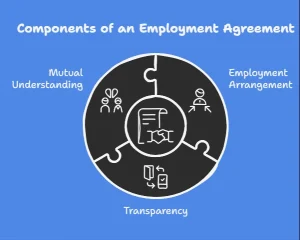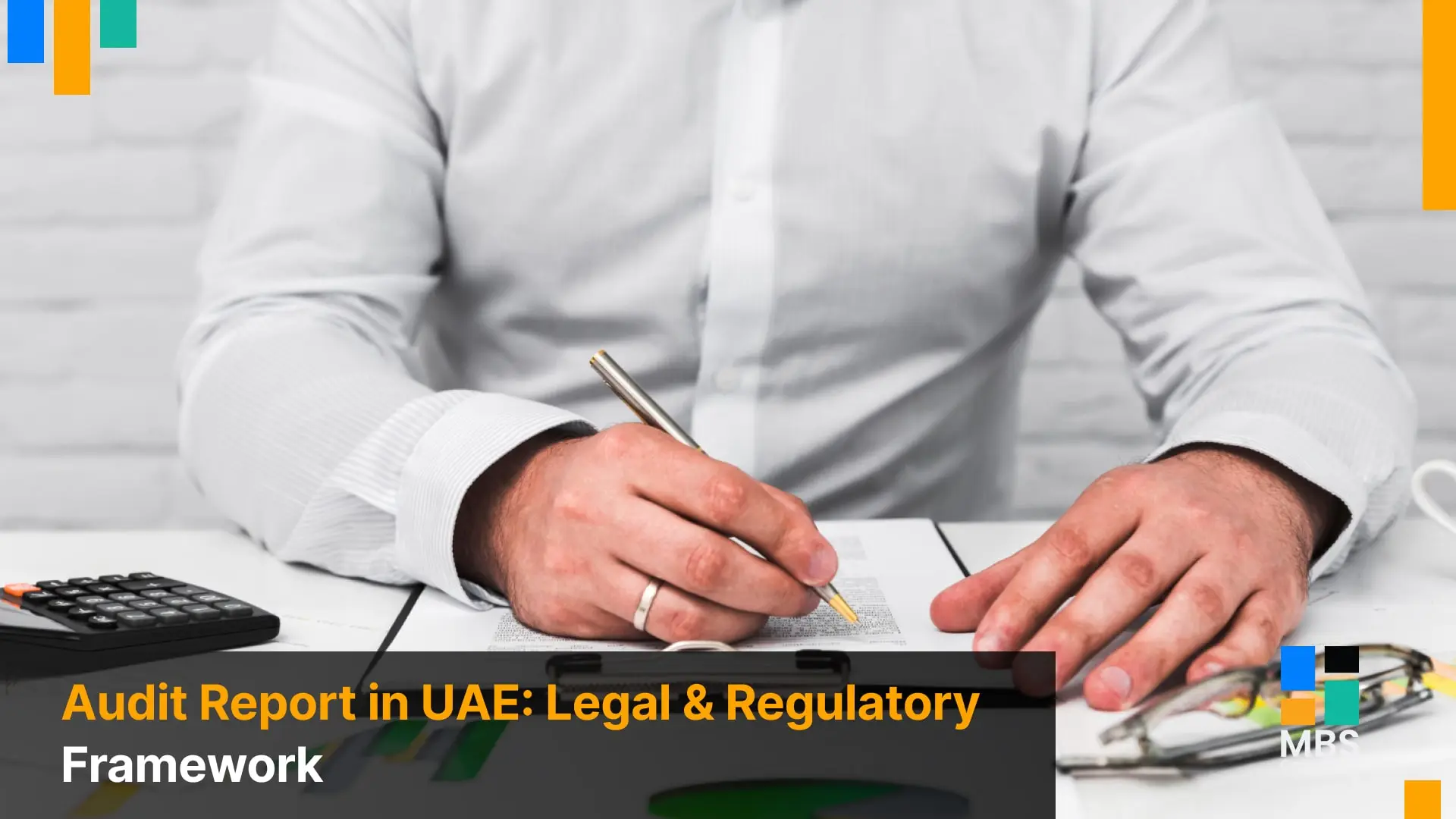In the UAE, in the constantly changing environment of employment laws, both the employer and employee need to remain current with recent developments. In 2003, the UAE labor law was about to unravel, introducing a tide of amendments.
According to the changes, it will shape the dynamics of the workplace. The amendments are on various aspects, such as working hours and contractual arrangements, while promising a significant impact on the employment framework.
In this article:
- We delve into an overview of the upcoming modifications, aiming to shed light on the key facets of the UAE Labour Law 2023
- The implications it holds for the workforce. Being aware of these developments is necessary to create a secure and peaceful workplace.
According to the UAE Labor Law (Employee Benefits)

The MOL UAE and Labor Law encompass several benefits that are aimed at safeguarding the welfare of employees. Here are the benefits of labor Regulations:
- Termination Benefits: The UAE labor law termination provides financial security during job loss, ensuring a safety net for employees in transitional periods.
- Leave Entitlements: Additionally, the UAE labor law annual leave details the leave entitlement of an employee, which encourages work-life balance as well as staff welfare.
- Health Coverage: Ensures access to health benefits, contributing to the overall welfare and medical security of employees.
- End-of-Service Gratuity: Furthermore, the UAE labor law gratuity provides a financial reward to employees completing their service, acknowledging their contribution to the organization.
Recent Guide and Regulations in the Private Sector
The UAE Labor Rules have undergone recent updates, bringing forth significant changes in the private sector. These revisions aim to enhance the working environment and employee rights. Companies may consider a legal advisor for assistance and remain compliant.
The notable update regarding the remote work regulations states the rights and obligations of both employers and employees engaged in telecommuting. It mirrors the changing dynamics of work arrangements in line with world trends.
Further, recruitment procedures and employee classification amendments also make the working relationship more open and fairer.
UAE Labor Law Importance
In protecting the rights and interests of employers as well as employees, the UAE Labor Regulations are most prominent. Hence, it places a major emphasis on the universally accepted principle of end-of-service gratuity. The law formulates the regulations applying to the employment relationship, providing for fair treatment and balanced practices.
The UAE Labor Law provides workers with a financial incentive referred to as gratuity when they finish their service. It depends on how long they have been serving. Calculated as UAE labor rule gratuity, it provides a safety net for workers who are changing jobs or retiring.
In the UAE labor market, it also assists in maintaining the general welfare and stability. It is essential to be well knowledgeable about the Labor Law for employers and employees. It helps in maintaining compliance and ensuring fair principles and justice in the employment environment.
Recruitment and Employment Contracts in the UAE
Employment contracts play a crucial role under the UAE Labor Regulations. It outlines the terms and conditions of the employer-employee relationship. Among the important aspects governed by the law is the employee’s annual leave. In the UAE, workers are entitled to a certain number of days of paid leave annually. It ensures that they get the chance to recreation and rest.
Labor contracts are formulated to explicitly state the rights and duties of employers and workers in the UAE. However, employers may seek legal advice for adherence. The law mandates transparency in the following:
- Employment agreements
- Addressing various aspects such as working hours, compensation, and other relevant conditions.
By closely following these laws, they achieve an equal and just working environment.
Both the employer and the employees are expected to know the contractual terms that are defined in employment contracts. They can have a copybook and a law-abiding working relationship.
Employment Agreement
As per the new labor law in the UAE, the employment agreement outlines the terms and conditions that govern the following:

- Employment arrangement
- Ensuring transparency and
- Mutual understanding.
It acts as a basis for peaceful working, leading to an equitable and balanced workplace. Both parties should read and sign the terms before beginning work.
It encourages a relationship based on conformity with the law and trust. It is recommended to keep abreast of the employment contracts since the changing labor legislation is important
Probation period
The probationary period plays a pivotal role in assessing the employee for a particular role. In this time period, the employers have the flexibility to designate a probationary period, during which both the employer and employee can evaluate each other. This period is crucial for:
- Gauging job performance
- Adherence to company policies, and
- Overall suitability for the position.
The employer must clarify their requirements and expectations to the new hires during the probation period. This practice encourages:
- Transparency
- Enabling constructive feedback and
- Allowing employees to acclimate to their roles effectively.
Without a doubt, it allows employers to recognize the gaps that need to be filled with essential training. The UAE labor law emphasizes a secure and productive working atmosphere
According to UAE labour law (Employment Termination)
Employers must adhere to the labor laws for fair dismissal and end-of-service. They must ensure clear communication and legitimate reasons for termination. The UAE labor law on resignation and termination provides a complete framework to manage these circumstances while maintaining a positive work environment. Workers must know all the rights and responsibilities regarding these rules to protect their interests and receive fair treatment at the end of service. It encourages both parties to adhere to established procedures.
By doing this, it can promote a balanced and harmonious work environment in alignment with the evolving provisions of the UAE Labor Law.
Advanced Notice of employment Termination
Providing an advanced notice of employment termination is a crucial aspect of the termination process, according to the UAE Labour Law. For both employers and employees, it helps safeguard their rights. The law outlines:
- Specific requirements for notice periods
- Allowing sufficient time for employees to prepare for the transition
- Seek alternative employment.
Hence, this proactive approach promotes fairness and transparency in the employment relationship.
Moreover, employers must clearly and promptly communicate termination decisions, ensuring employees receive well-advanced information. Similarly, employees must adhere to the established notice period in the UAE’s new labor law, promoting a cooperative and respectful termination process.
Furthermore, this adherence to advanced notice provisions contributes to a smoother transition. It helps mitigate potential disputes and upholds the principles of equity and legal compliance outlined in the Labor Law.
Notice periods for employees
It plays a crucial role in fostering a fair and transparent employment termination process. Before employment contract termination, the law mandates that both employers and employees must give advance notice. It ensures that both parties have adequate time to prepare for the impending changes.
The notice period serves as a buffer for employees. It allows them to seek alternative employment or make necessary arrangements. On the other hand, employers benefit from this stipulation. It facilitates a smooth handover of responsibilities.
The contract of employment determines the duration of the notice period, depending on the termination circumstances.
It is expected to adhere to the notice period regulations by both employers and employees as it contributes to the overall harmony of the work environment, aligning with the evolving provisions of the UAE’s new labor law to create a balanced and just employment landscape.
Summary dismissal
It is a termination of an employment contract without notice due to severe misconduct or violation of essential terms. When an employee’s actions gravely undermine the employer-employee relationship, then this provision is invoked. It makes it untenable to continue the association.
- Employers hold the authority to terminate an employee summarily if the latter engages in actions such as:
- Fraud
- Theft, or
- serious breaches of confidentiality.
It is a protective measure that enables employers to respond promptly to egregious offenses, safeguarding the overall integrity of the workplace. For both employers and employees, it is crucial to comprehend the circumstances warranting summary dismissal as outlined in the employment contract in the UAE Labor Rules and consider a reliable legal Consultancy for compliance.
During the termination process, it ensures fairness and adherence to legal standards. To mitigate any potential legal disputes, employers should exercise due diligence in documenting the reasons for summary dismissal. On the other hand, employees should familiarize themselves with their rights and obligations to prevent any unwarranted abrupt termination.
In cases of summary dismissal, employers do not have an obligation to provide notice or a notice period. They must justify the termination based on the employee’s severity. It emphasizes the importance of transparency and clear communication in the termination process.
End-of-service (Gratuity)

It serves as a key provision to safeguard employees’ financial interests. It is a lump sum amount provided to employees upon service termination. The gratuity will be issued irrespective of the termination reason. It ensures fair and just treatment of the workforce according to the UAE labor law.
The end-of-service gratuity calculation is based on the duration of an employee’s service on the final basic salary. For employees who are employed on an unlimited contract, the gratuity is calculated as follows:
21 days of basic salary for each year of service for the first five years, while 30 days for each subsequent year. The gratuity is prorated based on the completion of the contract term in the new labor law for limited contracts in the UAE.
Employees, except those dismissed summarily due to gross misconduct, are entitled to receive end-of-service gratuity for any termination, whether initiated by the employer or the employee.
This provision serves as a financial safety net, ensuring that departing employees receive a fair compensation package reflecting their service duration.




